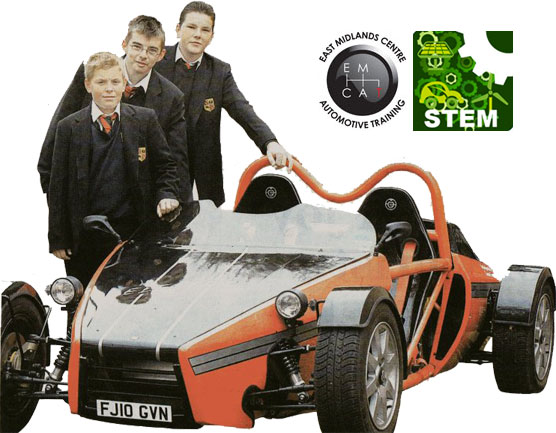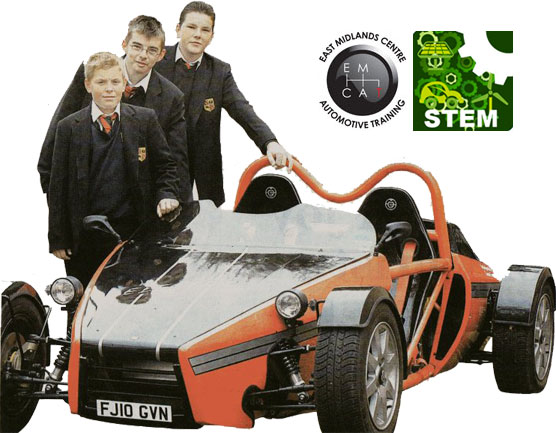After creating the electric powered MEV Missle, a cross in styling between the Rocket and Sonic 7, Stuart Mills sold the project to South Nottingham College to help teach students about vehicle maintenance, electrical skills and alternative energy vehicles. The Newark Advertiser ran a nice piece on the students who have worked on the project.

Magnus School pupils Ryan Pegg, Josh Garton, and Mark Loveridge, all 15 years old, have been working on an electric car as part of a project with South Nottingham College.
Pupils at the Magnus Church of England School are the first in Newark to have completed a project that demonstrates the role science and engineering can play in changing the way people live. For four months six pupils have worked on a unique electric car as part of the Science, Technology, English and Maths (STEM) project run by the South Nottingham College. They have all achieved their level one award in vehicle maintenance by completing modules in low carbon technologies, vehicle electrical foundation skills and environmental awareness.
Mr Adam Crowther, a teacher at the Magnus, said the project was an alternative option to arts or languages at GCSE. “If the pupils continue with the project as part of a Step Up Diploma, it will be the equivalent of four GCSEs, in addition to the core subjects they will take,” he said. “This has brought out their confidence. They have worked well as a team. We hope to continue with it for the foreseeable future, if we get the funding, as we have really seen the benefits. We want to expand it to more pupils and get more creative.”
The car, called the Missle, was purpose-built by Mansfield-based company MEV. It is powered by an electric motor and rechargeable batteries and can reach speeds of up to 60mph. It is the only one of it’s type in the world.
Mr Jon Rawson, the STEM coordinator at South Nottingham College, said the course educated youngsters in an entertaining way. “It’s dynamic learning and these pupild have really responded well,” he said. “The feedback from the lads is that they wish they could have had this style of learning and education earlier as it really engages them and grabs their attention.” Mr Rawson said he hoped the project could be delivered to other schools in the area and that he was looking for corporate funding and other grants to develop the project. “We are also trying to attract more girls as in Britain there are fewer women working in engineering than anywhere else in Europe,” he said. “Girls don’t feel they have the opportunity to get involved in engineering but this course is aiming to change that.”
More information about STEM is available at www.snc.ac.uk/emcat/stem
Original article appeared October 6, 2011 on page 33 in the Newark Advertiser. newarkadvertiser.co.uk

